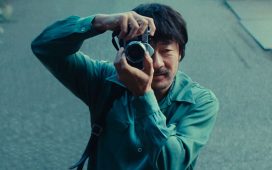Roger Corman, who directed and produced countless B-movies and championed future industry stalwarts Martin Scorsese, Robert De Niro, and Jack Nicholson, died at his home in Santa Monica, California on May 9, Variety reports. He was 98.
“His films were revolutionary and iconoclastic, and captured the spirit of an age. When asked how he would like to be remembered, he said, ‘I was a filmmaker, just that,’” the family said in a statement to the outlet.
For nearly five decades, he dominated the B-movie market, with films that ranged from his early work in the Fifties, which included Westerns, such as Five Guns West and The Gunslinger to horror and sci-fi, including The Day the World Ended and The Undead, to teen flicks like Carnival Rock and Rock All Night.
His 1958 picture Machine-Gun Kelly signified a turning point in his being critically recognized. He followed that up with I Mobster and then 1960’s The Little Shop of Horrors.
He often worked with Sam Arkoff of American Intl. Pictures, who financed most of his early work. Together, they worked on a series of horror films focusing on Edgar Allan Poe, including 1960’s The Fall of the House of Usher and several low budget hits like The Tomb of Legeia and The Masque of Red Death. These films brought renewed attention to actors such as Boris Karloff, Vincent Price, Basil Rathbone and Peter Lorre.
It was around this time that he began to work with then-unknowns such as Ellen Burstyn, Nicholson, and De Niro, as well as screenwriters including Robert Towne, and directors who would eventually become household names, such as Scorsese, Jonathan Demme, Joe Dante, and Peter Bogdanovich.
In 2009, he received an honorary Academy Award for his life’s achievements. He produced more than 300 films, and directed 50 titles.
This is a developing story…













